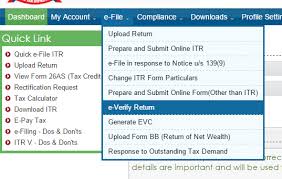 If a startup claims benefit in first year & does not make profit in next two years, it can still enjoy tax exemption on profit in fourth and fifth year
If a startup claims benefit in first year & does not make profit in next two years, it can still enjoy tax exemption on profit in fourth and fifth year
The three-year tax holiday proposed for startups in India will be available over a five-year window, ensuring that innovators won’t lose the benefit even if they make a profit later, the government said.
Those seeking the income tax exemption, announced in the Startup Action Plan on Saturday, will need to get approval by March 2019, in line with the government’s policy to weed out exemptions and bring down the corporate tax rate to 25%. Startups approved until March 31, 2019, will enjoy the benefit for up to five years. The government has proposed that a high-level, inter-ministerial committee should vet startup proposals to validate the innovative nature of the business for granting tax-related benefits. The details of the tax benefits will be announced in the budget.
“The benefit will be available for three years over a five-year period, “a senior government official told ET. If a startup claims the benefit in the first year and does not have a profit in the next two years, it will not lose out on the exemption. If profits are made in the fourth and fifth year, they will still be eligible for the tax break.
“All startups incorporated in India not prior to five years as per the definition of startup and starting the operations before 2019 can get this benefit for three years,“ said Amitabh Kant, secretary in the Department of Industrial Policy and Promotion, which piloted the startup initiative.
With the deadline for seeking exemption set for March 2019, the scheme will effectively run till March 2024, a period of eight years from now.
“This fiscal exemption shall facilitate growth of business and meet the working capital requirements during the initial years of operations, “according to the action plan document.
The policy imposes only one condition on startups claiming the benefit, apart from seeking approval from the appropriate body and meeting eligibility criteria: it should not distribute dividend while getting the tax exemption.
Tax-friendly Regime Need of the Hour for Startup Investors
The devil is in the details. The tax incentive package for startups will be clear in the Budget. But open-ended tax breaks won’t be possible as the government has already signalled a phasing out of exemptions to lower the corporate tax rate. Investments in unicorns would typically be long-term. So, it makes eminent sense to spare investors from paying capital gains tax when they sell their unlisted shares in startups after holding them for over a year. A tax-friendly regime will encourage many of them to relocate to India from, say, Singapore. The government, as promised, should end its Inspector Raj to boost the startup ecosystem.
Source: http://epaperbeta.timesofindia.com/Article.aspx?eid=31816&articlexml=Startups-May-Get-5-Year-Window-to-Avail-18012016015013
 Centralized Processing Centre (CPC), Bengaluru has processed 3.27 crore returns as of December 31, registering a growth of 18 per cent over 2.65 crore returns processed during the corresponding period of the previous fiscal.
Centralized Processing Centre (CPC), Bengaluru has processed 3.27 crore returns as of December 31, registering a growth of 18 per cent over 2.65 crore returns processed during the corresponding period of the previous fiscal.




